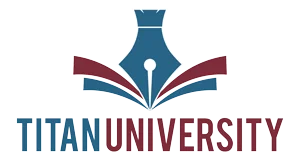Description
Florida PE Ethics Course
Importance of Ethical Conduct
Engineers are responsible for ensuring public safety, health, and well-being, as outlined by the Florida PE Ethics Course and the National Society of Professional Engineers (NSPE) Code of Ethics. This 1-hour Florida PE Ethics Course highlights the Fundamental Canons of the Code, which require engineers to prioritize these values in their professional duties.
Course Overview
In this Ethics in Engineering course, participants will learn to:
- Offer Services Within Expertise: Provide services only in areas where they have the necessary expertise.
- Make Truthful Public Statements: Ensure public statements are truthful and objective.
- Remain Faithful to Employers and Clients: Act with honesty and sincerity in professional relationships.
- Present Themselves Honorably: Maintain an honorable, responsible, ethical, and lawful manner.
Learning Outcomes
Upon completing this course, participants will be able to:
- Understand Ethical Foundations: Gain a solid grasp of core ethical principles guiding the engineering profession, focusing on integrity and public welfare.
- Navigate Florida’s Engineering Laws: Learn about specific laws and regulations governing engineering practice in Florida, ensuring compliance in professional activities.
- Apply Ethical Principles: Develop the ability to apply ethical reasoning to real-world engineering scenarios, prioritizing safety, sustainability, and societal well-being.
- Recognize and Resolve Ethical Dilemmas: Identify ethical dilemmas in engineering practices and explore strategies for effective resolution, using decision-making models.
- Commit to Lifelong Learning: Understand the importance of continuing education in maintaining competence and ethical standards, committing to ongoing self-improvement.
- Fulfill PDH Requirements: Meet part of the Professional Development Hours (PDH) requirements needed for Florida PE license renewal, focusing on ethics and responsibility.
- Promote Public Trust: Strengthen your ability to conduct practices that build public trust and respect societal needs, contributing to sustainable community development.
- Cultivate Ethical Leadership: Encourage a culture of ethical practice within engineering teams and organizations.
- Adhere to Professional Codes: Deepen your understanding of professional codes of conduct, including the NSPE Code of Ethics, and apply these standards in everyday practice.
- Enhance Professional Reputation: By committing to ethical practices, improve your professional reputation and credibility among peers, clients, and the wider community.
Enroll Today
Join us to fulfill your ethical obligations as a Florida engineer. Enhance your commitment to professionalism and public welfare. Enroll now to gain the knowledge and skills needed to navigate ethical dilemmas confidently and with integrity.
Hold paramount the safety, health, and welfare of the public. Perform services only in areas of their competence. Issue public statements only in an objective and truthful manner. Act for each employer or client as faithful agents or trustees.
The Florida Board of Professional Engineers is responsible for reviewing applications, administering examinations, licensing qualified applicants, and regulating the practice of engineering throughout the state.
This course is intended to provide you with the following specific knowledge and skills: Learn the definition of a profession and professionalism, become familiar with professional codes of ethics, Know the types of professional misconduct prohibited by licensing boards.
According to Rule 4-1.6, a lawyer can share information about a case only if the client agrees, or if specific exceptions in parts (b) or (c) allow it.
61G15: Board of Professional Engineers – Florida Administrative Rules, Law, Code, Register – FAC, FAR, eRulemaking.
Professional engineers often encounter ethical challenges in their work. One such issue is respecting people’s privacy, which can become complicated in various situations. They also face problems with sexual harassment and racial discrimination, which are serious concerns in any workplace. Additionally, the structure of professional ranks can lead to ethical dilemmas. Finally, engineers must consider environmental justice, ensuring their projects do not harm the environment or disadvantaged communities.









Reviews
Ratings and Reviews